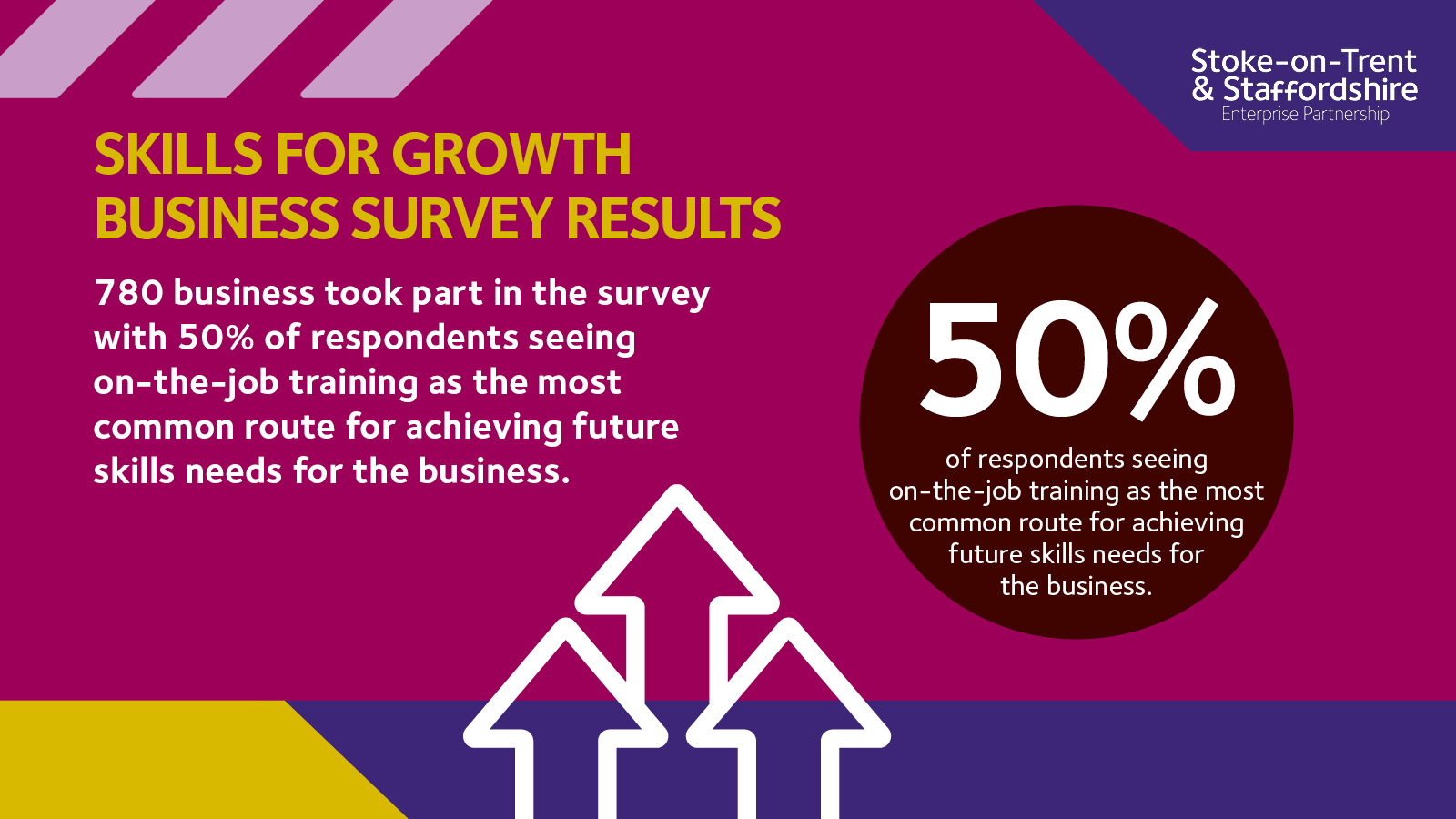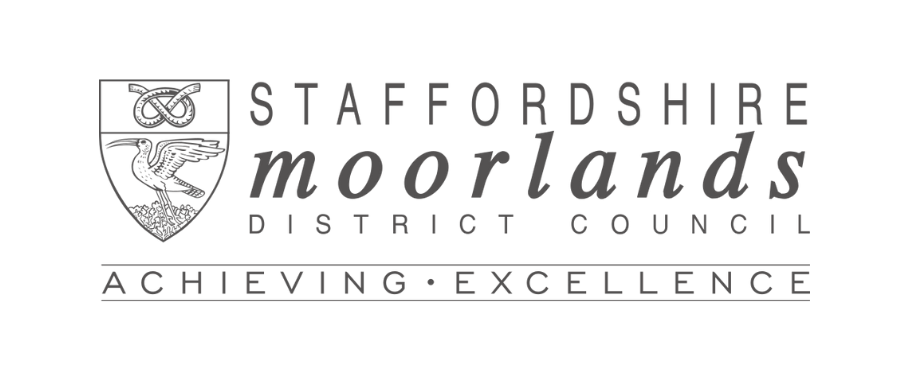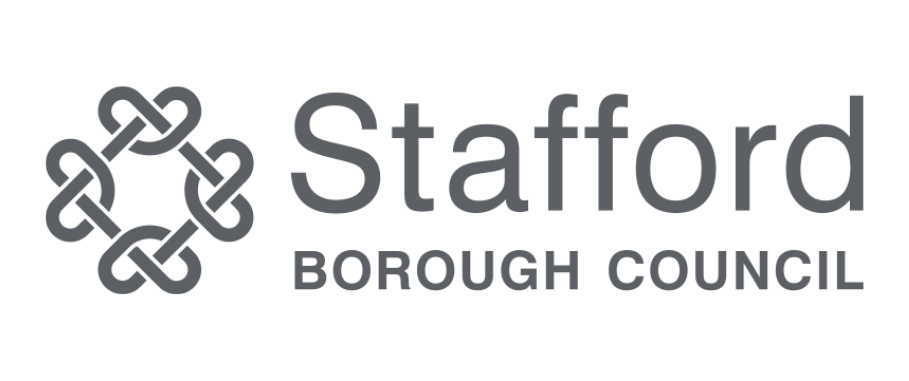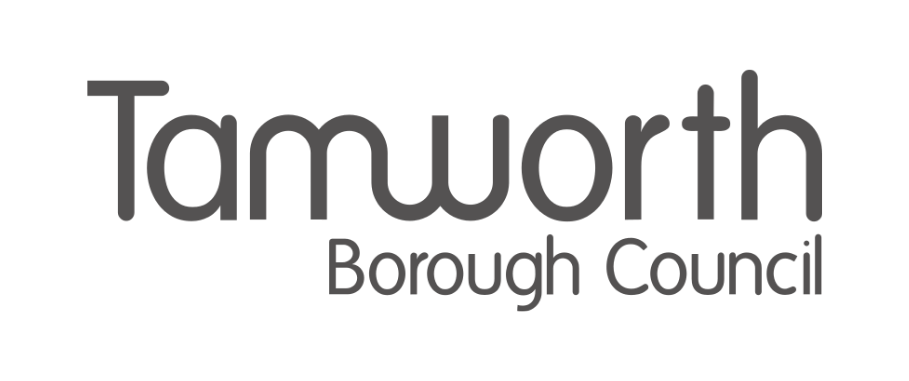1. Stoke-on-Trent and Staffordshire Skills Advisory Panel: Skills for Growth Business Survey 2022
You can read the final research findings report here.
The SAP has established a full evidence base to support and inform the development of the SSLEP Skills Strategy, which recognise that securing a well-qualified and adaptable workforce with the skills sets appropriate to the needs of existing business sectors, as well as those in which we have aspirations for economic growth, should be a fundamental priority for our economic development. The SAP and the work it drives will be a crucial part of realising this aspiration.
Although the SAP evidence base and strategy development has been recognised as best practice by several Government departments including DfE and BEIS, we continually look to strengthen our understanding of changing local employer labour and skills requirements to inform local skills provision. To this end the SAP recognises that currently there is limited SSLEP business voice intel on current and future skills demand, supply and mismatch and this is a priority area to strengthen.
The requirement to address this knowledge gap has been heightened further by the COVID-19 pandemic and BREXIT which have had a significant impact on the economy and skills landscape leading to changing skills demand and the requirement for skills supply to adapt.
 To improve local business voice intel the SAP Board commissioned a local business consultation, the SAP Skills for Growth Business Survey.
To improve local business voice intel the SAP Board commissioned a local business consultation, the SAP Skills for Growth Business Survey.
The business perspective is an important one as they are typically best placed to provide an overall perspective on activities within the workplace or enterprise.
The added value of the consultation alongside the extensive existing SAP evidence base will inform our strategic direction.
From February to July 2022, Metro Dynamics and IBP Strategy and Research worked together to conduct the survey with 780 businesses from across the broad local business base, although the survey has targeted specific priority growth sectors and skills areas identified by the SAP.
Aim
The aim of the Skills for Growth Business Survey centred around furthering our understanding of skills demand, supply and mismatch within our local economy by identifying occupations and skills requirements of businesses, such as:
- New and emerging Digital skills
- Roles in the Green Economy/Low Carbon/Net Zero
- Skills for new technology adoption such as AI/Automation/Machine learning in our priority and locally important sectors including:
- Engineering and Advanced Manufacturing
- Construction of housing including Modern Methods of Construction and Infrastructure e.g. HS2/West Midlands Freight Interchange
- Advanced Logistics
- Health and Social Care
Identifying occupations and skills requirements to inform curriculum that will help drive high-value economic growth and increase productivity.
The business consultation provides more granular insight than was currently available, with detailed sectors and district/borough breakdowns. This more granular detail will provide valuable insight to inform local partners’ plans, e.g. district Education, Employment and Skills Plans, Skills Hub, Careers Hub etc., in ensuring skills supply meets demand. We will also have engaged business contacts to pursue the matters raised further.
Purpose
To consult with SSLEP businesses to help understand local labour and skills needs now and in the future. The findings of the consultation will be used by local partners to support a number of priority areas including:
- Provide more granular skills business voice intel – SSLEP wider discussions to strengthen in this area based on LEP Review.
- Support skills demand and supply matching – skills system investment and local curriculum responding to changing business needs to help ensure that supply meets employer demand to drive economic growth, increase productivity and achieve better outcomes for local residents.
- Inform COVID recovery and future economy workstream – Local Skills Improvement Plan (LSIP) / guide the SAP Skills Strategy priority areas / New Economy and Skills Strategy / Careers Hub / Skills Hub / district Education, Employment and Skills Plans etc.
Alongside the full findings report there are two separate annexes which provide further detailed analysis.
- Annex 1: Full Survey Results including Locality Breakdowns – provides a presentation of the full survey findings with locality analysis.
- Annex 2: Sector Spotlights – provides a breakdown of the survey findings by priority growth sector and key skills areas.
2. Skills Advisory Panel Business Survey 2020
Stoke-on-Trent and Staffordshire Local Enterprise Partnership commissioned Watermelon Research to conduct a telephone survey with businesses across Stoke-on-Trent and Staffordshire.
You can read the final business survey headline report here: SSLEP SAP Business Survey Headline Report
In total, 1,503 interviews were completed during the fieldwork period which ran from January 7 to February 7 2020. A 10 minute survey was designed which sought to inform future SSLEP and partner support on business needs and issues.
Interviews were conducted with a range of businesses in terms of sector, size and geographical area with quotas set to achieve the most robust and useful insights from the survey to meet local strategic needs.
Following completion of fieldwork, weighting was applied to the data for sector, size and geographical area to ensure the results were representative of businesses in the area. Along with this main report, 10 sectoral reports have also been produced to cover off any key sector differences to the overall findings.
PROFESSIONAL, SCIENTIFIC AND TECHNICAL
3. Digital Skills Business Survey 2020
Serco Employment and Enterprise commissioned a digital skills business survey on behalf of Stoke-on-Trent & Staffordshire Local Enterprise Partnership as part of its Skills Support for the Workforce project. The research has been funded by Education & Skills Funding Agency and the European Social Fund as part of the 2014-2020 European Structural and Investment Funds Growth Programme in England.
You can read the survey here: Serco_SSLEP_Digital_Skills_Business_Survey_2020_Report_V3F
The research sets out to gain a better understanding of local digital skills demand issues so that resources can be allocated more effectively and local training provision can be more targeted, hence helping Stoke-on-Trent and Staffordshire businesses to improve productivity and achieve their potential. A telephone and parallel online survey were completed with 303 businesses from across Stoke-on-Trent and Staffordshire between 7 February and 21 February 2019 (with the online survey remaining open for a further month). To ensure a representative sample, quota targets were set on SIC, number of employees and Local Authority area.
Note:
- The Skills Support for the Workforce project received funding from the European Social Fund as part of the 2014-2020 European Structural and Investment Funds Growth Programme in England. The Department for Work and Pensions is the Managing Authority for the England European Social Fund programme. Established by the European Union, the European Social Fund helps local areas stimulate their economic development by investing in projects which will support skills development, employment and job creation, social inclusion and local community regenerations. For more information visit https://www.gov.uk/european-growth-funding.



















